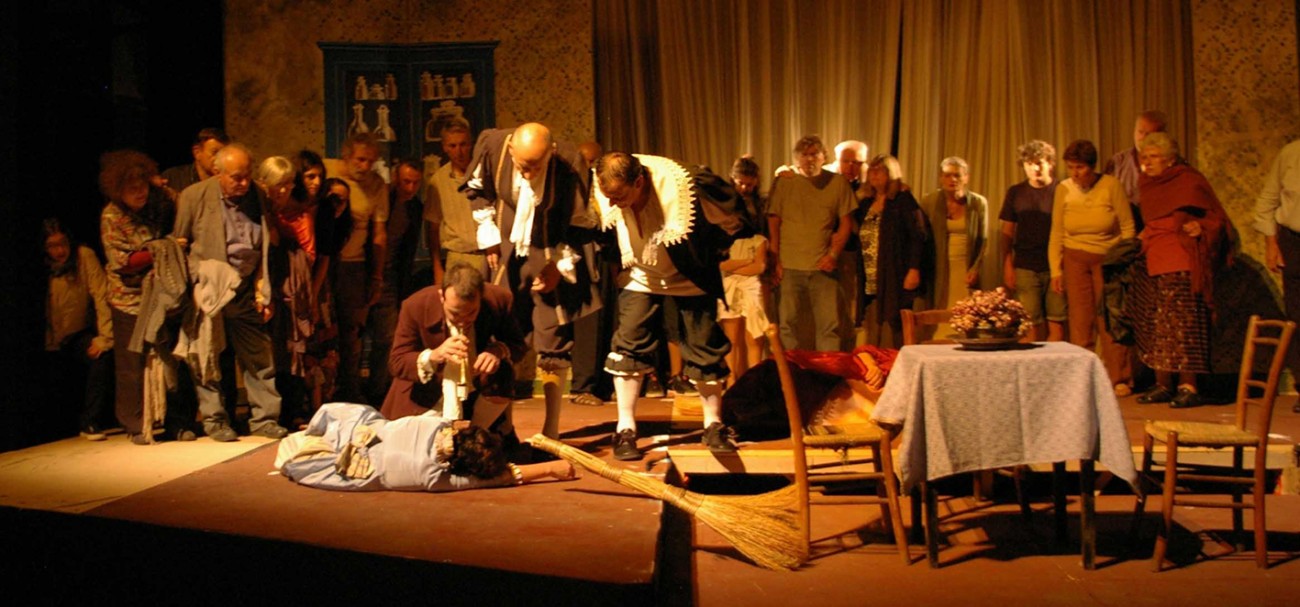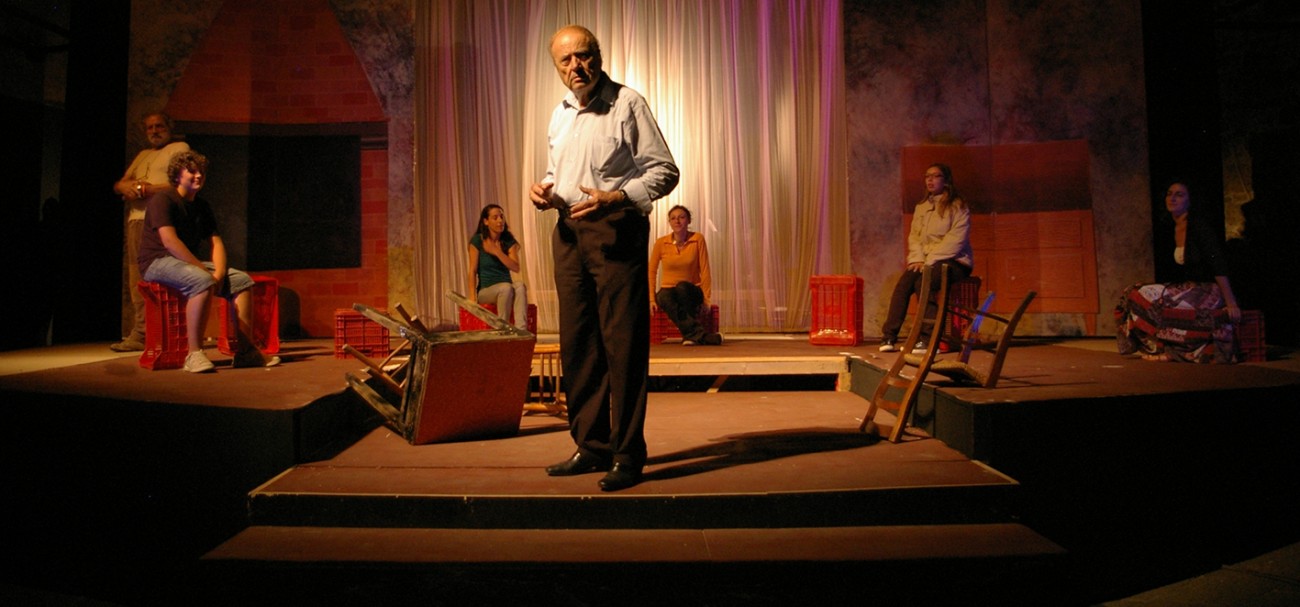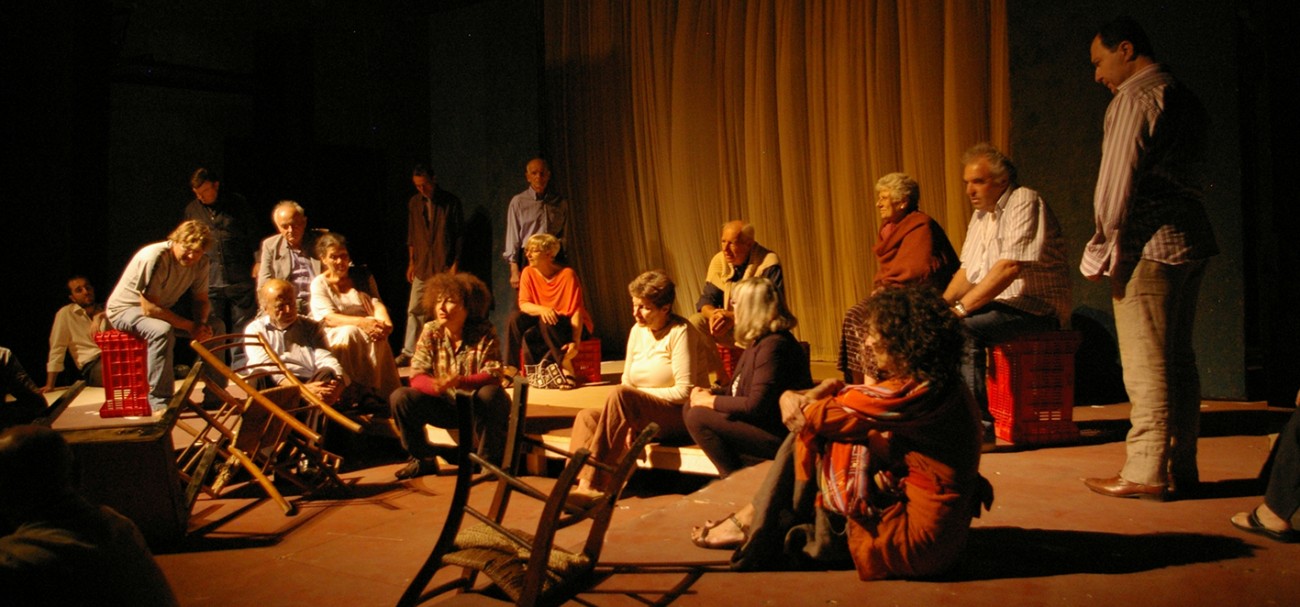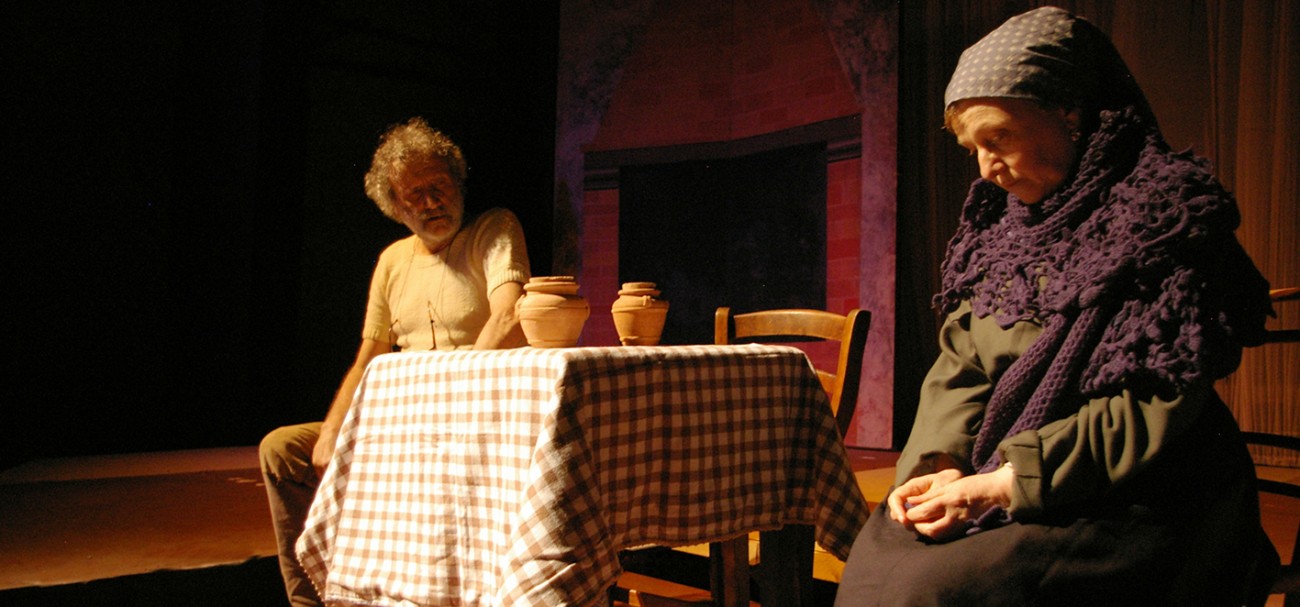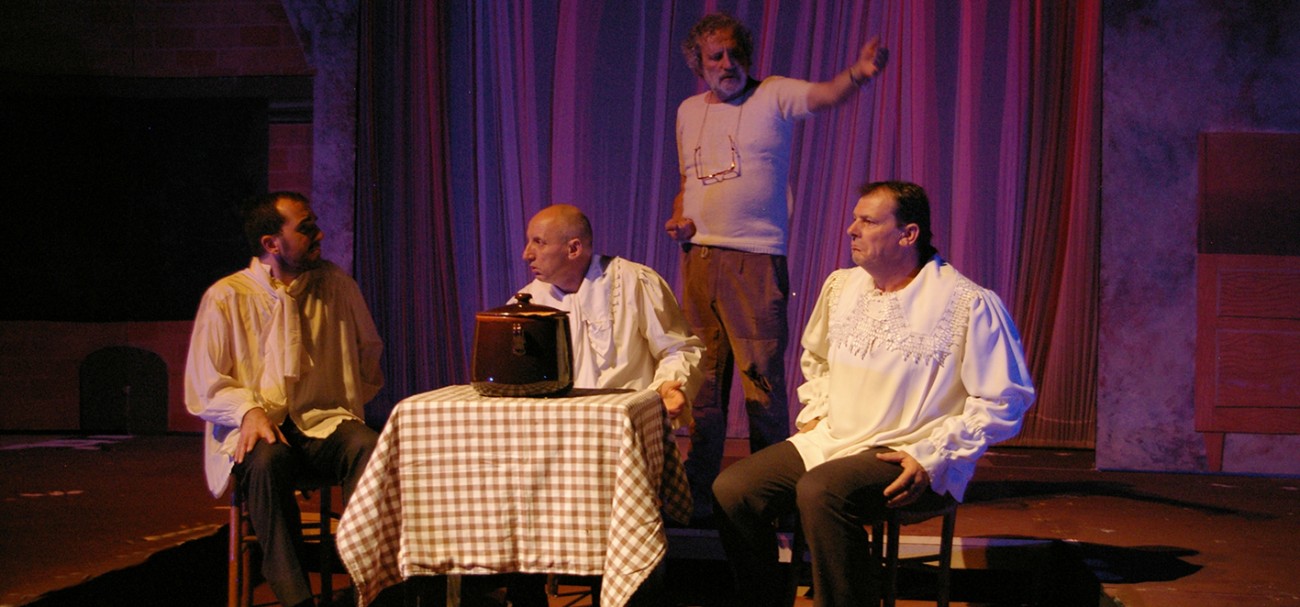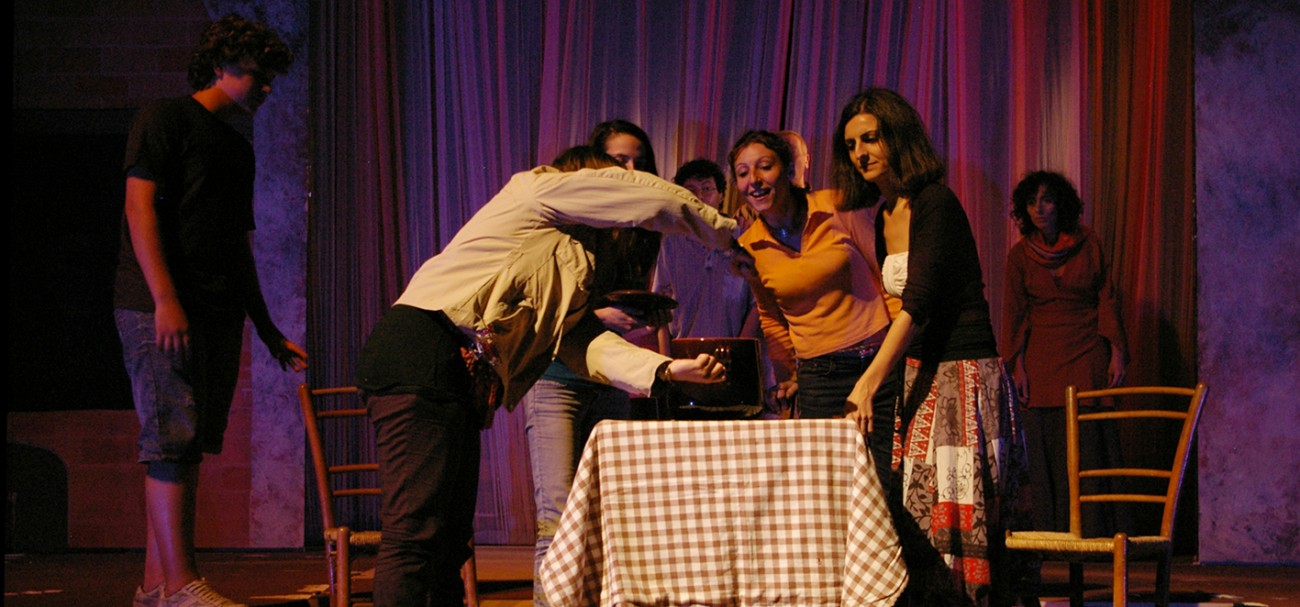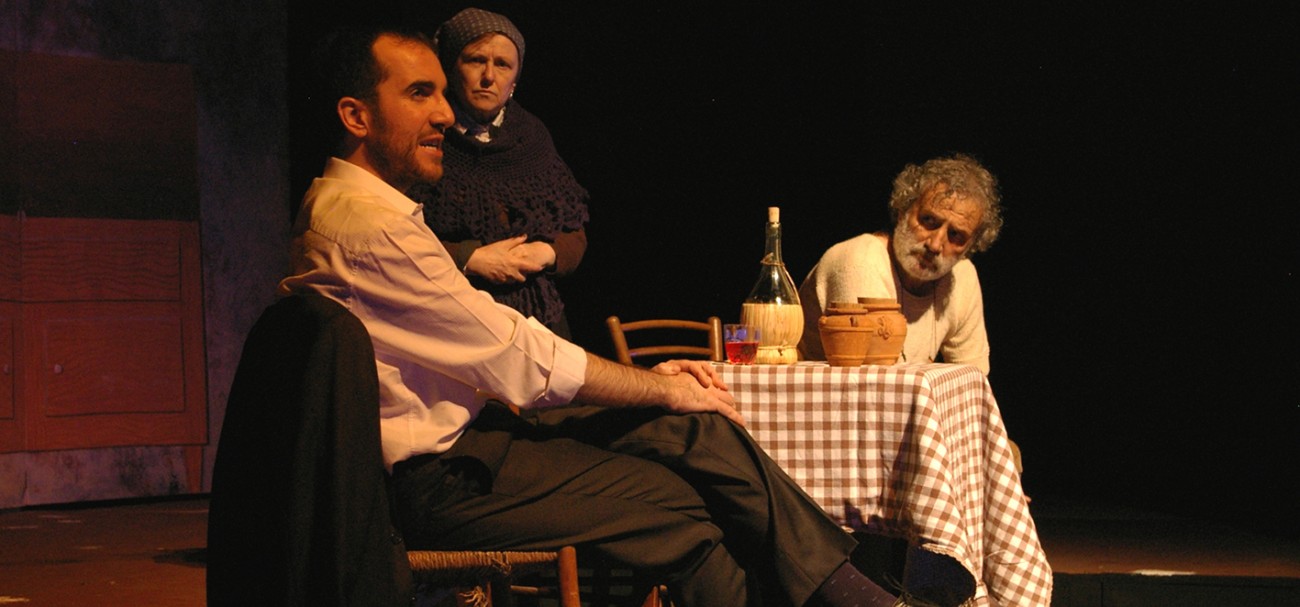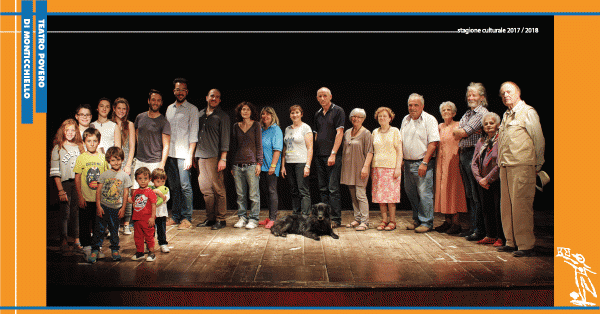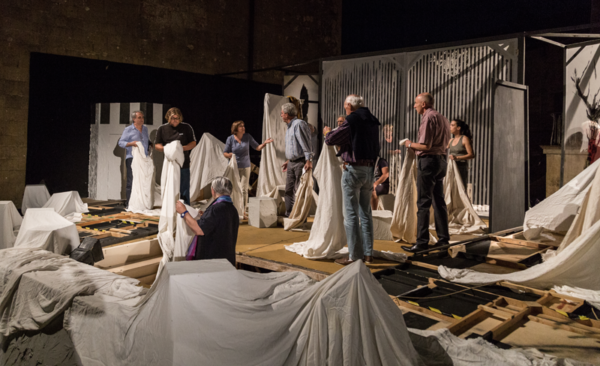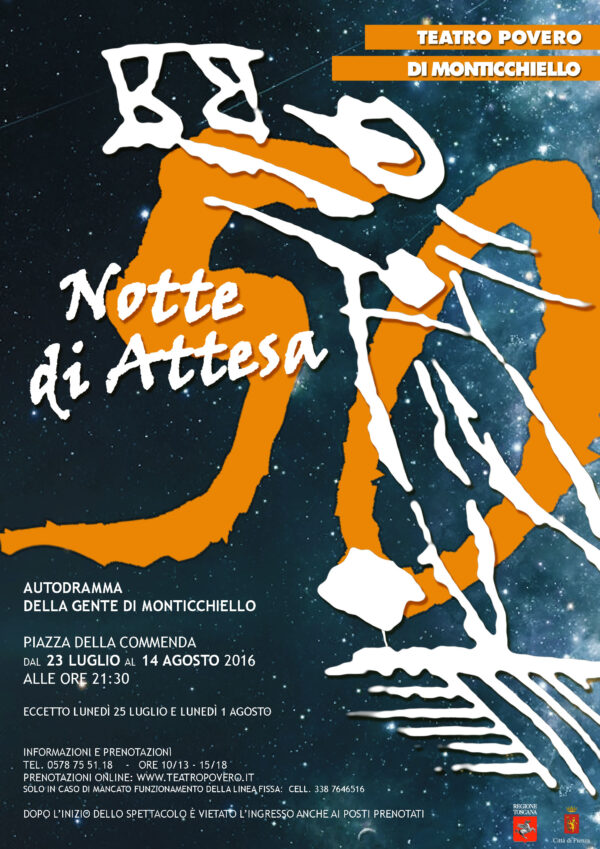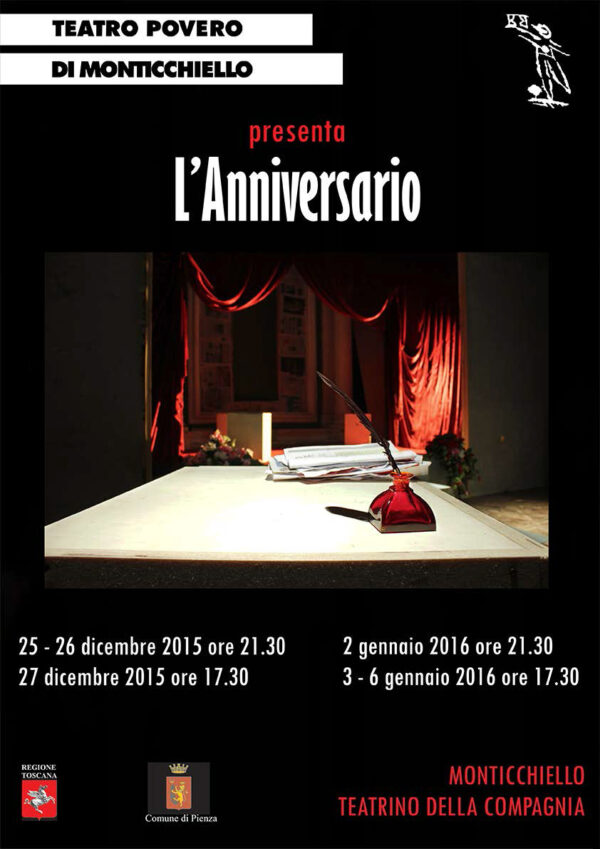‘Poison Ball’ is a children’s game, in which any player who is touched by the ball becomes ‘dead’. The game was used as a metaphor in the 2012 autodramma, alongside yet another dramatization of the peasant folk tale of Campriano (also used in 1999 and in 2004).
Monticchiello was still preoccupied with the effects of the economic crisis. So this time the Grocers (Speziali) whom Campriano manages to cheat were made to represent different types of corrupt exploiter in modern society, who were seen as bearing the blame for the sufferings and difficulties of a small community, and especially of its younger members. The children of the third Speziale appeared as another version of the invading monsters who had figured in the previous four autodrammi: they invaded the innocent ‘Poison Ball’ game of ordinary village children, and the ball which they played with did indeed appear to strike its victims dead.
The tale of Campriano transformed these monsters back into the farcical Grocers of the original story, who were tricked and defeated. But a concluding ballad was delivered by a singer who had been watching and interpreting the whole autodramma: she was pessimistic about whether it is quite so easy to exterminate the people who really cause crises and disrupt honest society.
Meanwhile the Teatro Povero was sadly recognising that in 2012 it had lost two of its most beloved and effective senior actors. Performances of Palla avvelenata were dedicated to the memory of Alpo Mangiavacchi and Osvaldo Bonari.

